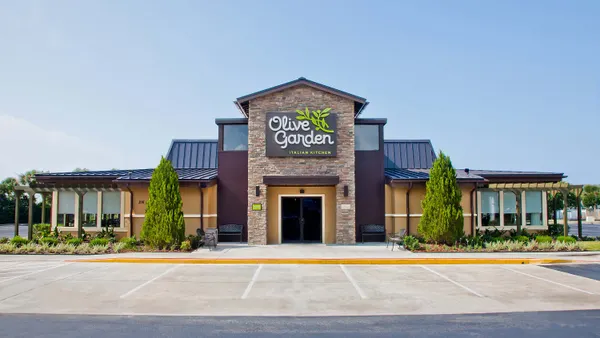Dive Brief:
- Legion Partners Asset Management, an activist investor, has acquired a stake in Papa John’s International. The news was disclosed on Monday and reported by the Wall Street Journal. Founder and former CEO John Schnatter was not involved in the Legion move.
- Legion is working with the California State Teachers’ Retirement System, which also owns a small stake in the pizza company. Together, the two funds equate to a 5.5% stake. The groups have met with Papa John’s board members in an effort to turn around sales. Since Schnatter’s much publicized ousting in July, shares have dropped 12%.
- “Independent directors of the Papa John’s Board and members of our senior leadership team have been speaking with shareholders as part of our efforts to move the company forward,” a company spokesperson told the Wall Street Journal. “We appreciate the support and feedback we have received and are committed to taking all appropriate steps to serve the best interests of all Papa John’s shareholders.”
Dive Insight:
The fate of Papa John’s following the Schnatter fallout is anyone’s guess. Rumors have been swirling nonstop since the founder and former CEO's messy departure — including speculation that the company’s going private, that Schatter himself is wooing private equity firms to buy out the company, and that Wendy’s is looking to snap up the chain.
For now, the restaurant is staying the course with its turnaround plan. Changes Papa John’s is making include lowering prices, partnering with DoorDash to cover rural areas, introducing a new Schnatter-less marketing campaign that highlights the company’s (other) employees, and providing franchisees with financial support by reducing royalty payments and food costs.
Legion is also suggesting that the pizza company cut costs and refranchise its system to boost profits. Franchisees currently operate 80% of the Papa John’s U.S. system. Wall Street responded favorably to the news of the Legion Partners investment, with shares of Papa John’s up 4.3% on the day.
Legion has some proxy fight experience. The investor also partnered with the California teachers fund in 2014 to urge men’s retailer Perry Ellis to put itself up for sale. In response, Perry Ellis changed up its board of directors. It's unclear if Legion's dealings with Papa John's will lead to similar shakeups, but the activist investor seems confident in the chain's potential. Ted White, a Legion managing director, told the Wall Street Journal, “there’s a great opportunity here. It’s something the founder has put a lot of effort into building it up to where it is today.”
He has a point. Just two years ago, Papa John’s was flirting with $90 shares. Now, it’s lucky to hit $50. But not much has changed for Papa John’s fundamentally other than the absence of its founder from its marketing campaigns. This removal is likely to work in the company’s favor, as Schnatter’s activity has appeared unhinged at times. He has accused CEO Steve Ritchie of creating the N-word scandal, has refused to sell any of his 30% stake and has launched a website — savepapajohns.com — where he issues a steady flow of accusations against the pizza chain.
But this pivot away from Schnatter hardly guarantees smooth waters ahead. Papa John's will be taking an especially big risk in lowering its prices, for example. The company's promise of “better ingredients, better pizza” has long been its differentiator, and has justified a slightly higher price point than its value-heavy competitors — namely Domino's, Pizza Hut and Little Caesars. Striving to lower prices while simultaneously lower food costs for franchisees is a gamble that will force the chain to find cost savings from other avenues without compromising its product. In a tight-margined category with intense competition from national, regional and independent players, that’s easier said than done.










